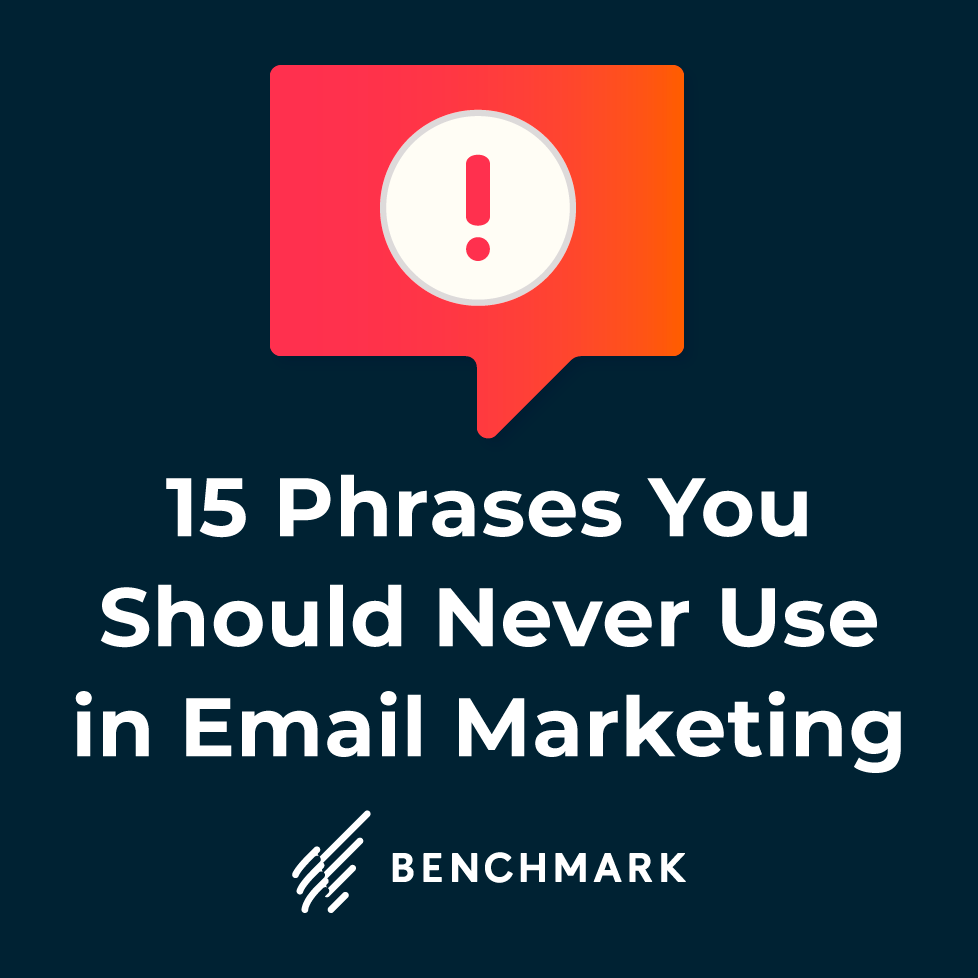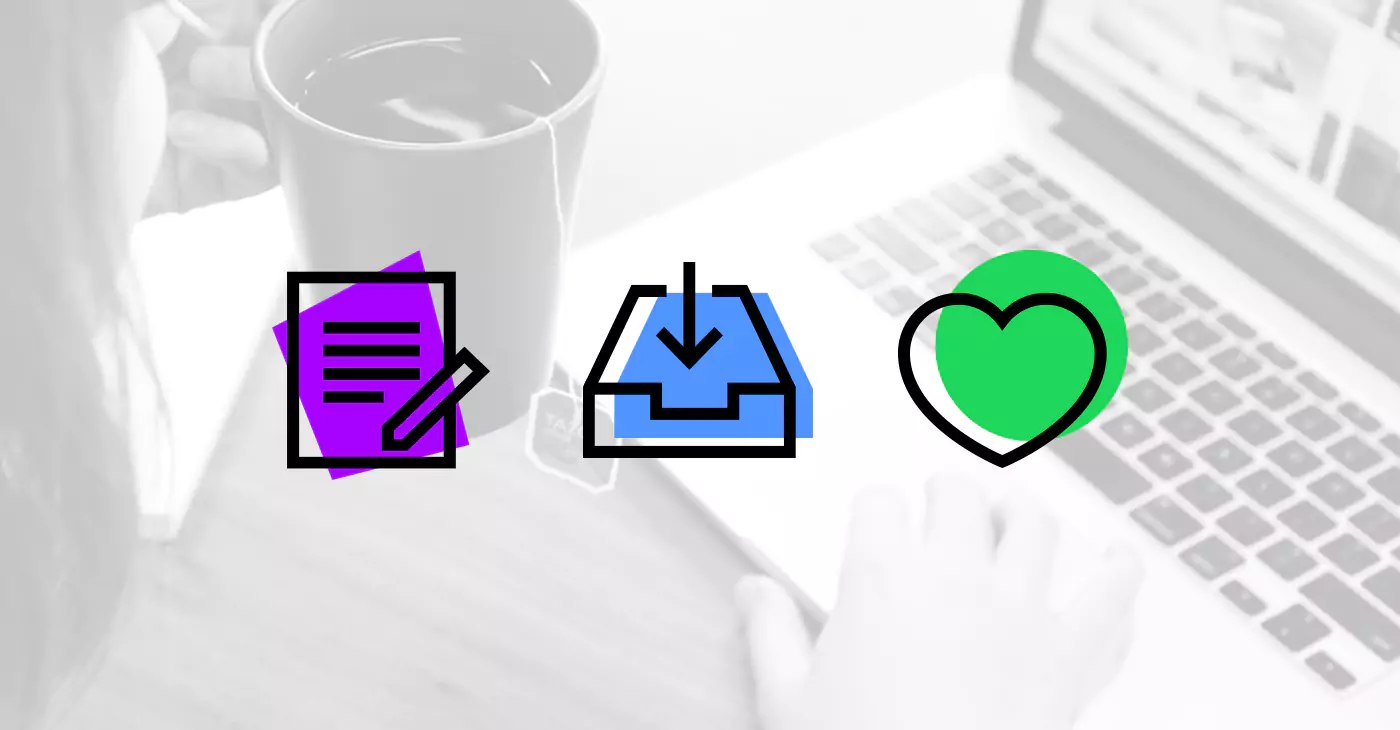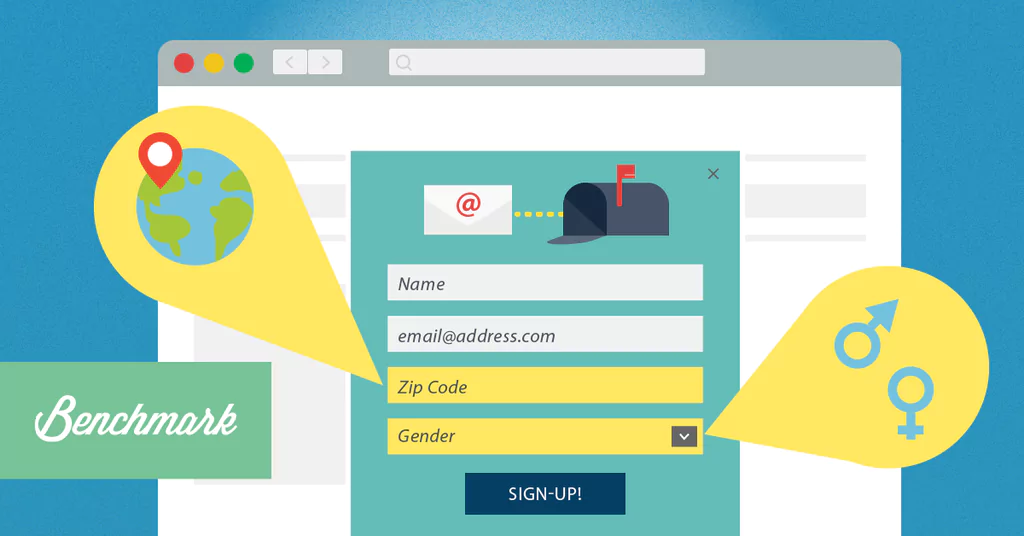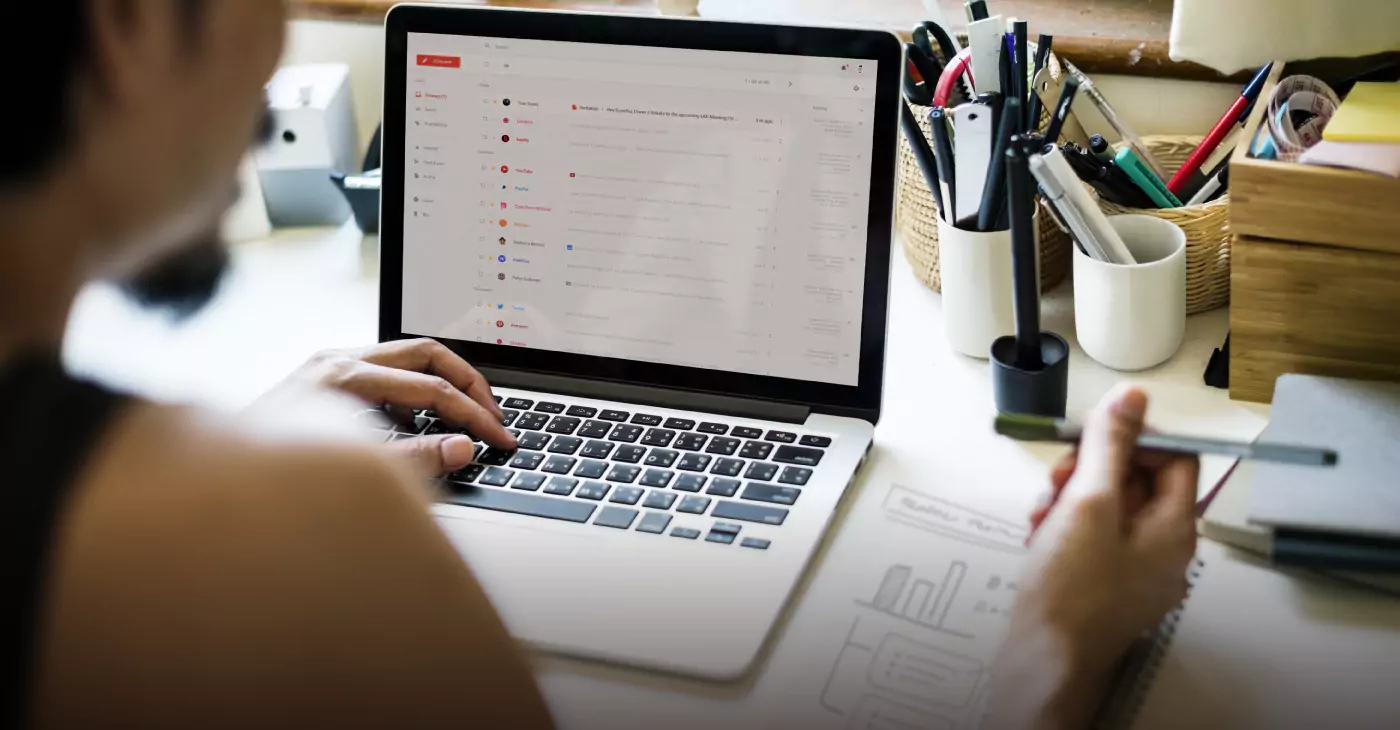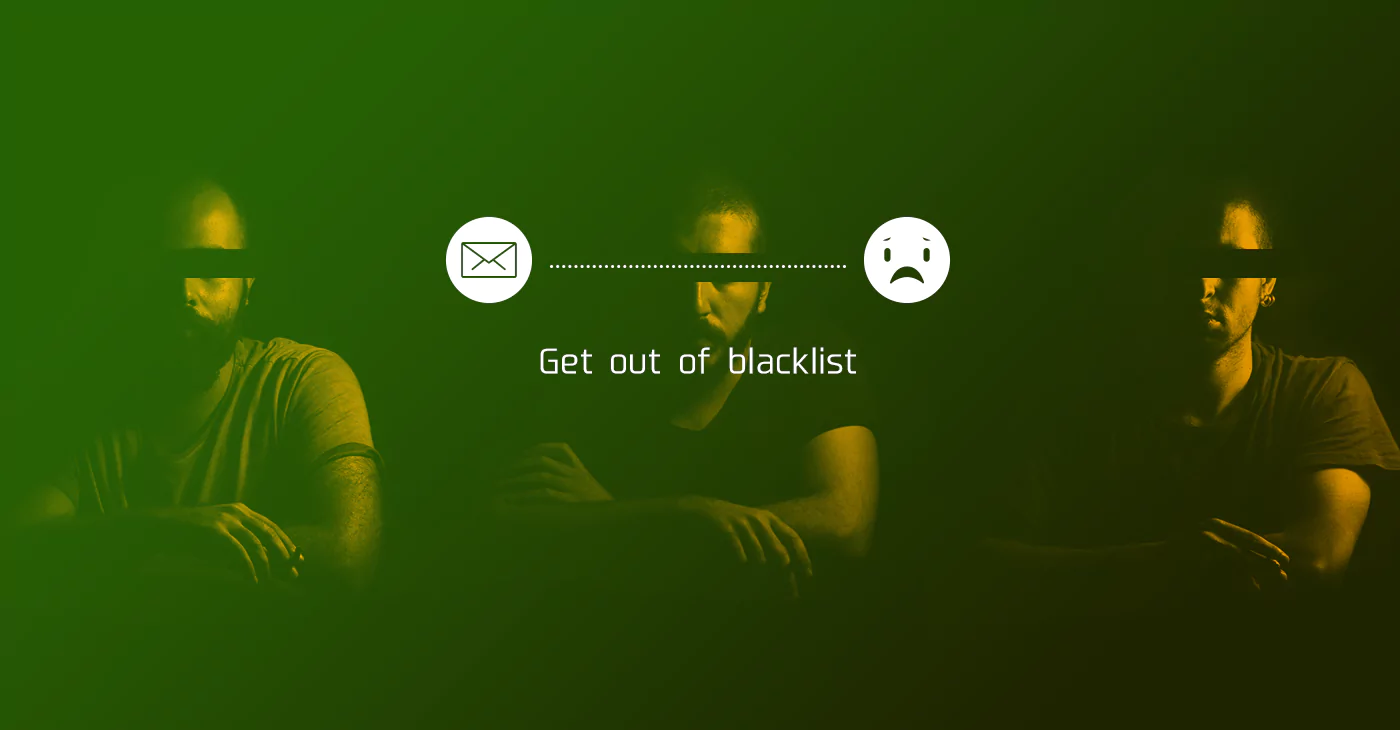Email marketing can be complex business.
To understand it and effectively leverage it, you should consistently practice and learn from the results.
There are a lot of email practices that can boost your performance and a lot of disempowering techniques that will only damage your business.
Hannah Digweed, CEO at edugeeksclub.com, had to say:
The importance of the wording you use throughout your emails is high, simply because an email is simply a bridge of communication between your brand and your customers. When you send an email, you’ll have to be extremely careful about adding relevant information. On the other hand, you should also pay a great deal of attention to how your message could influence the perception or behavior of your subscribers.
Nevertheless, some words should never be pronounced in email marketing. Some words can turn a loyal subscriber into a stranger, while some words can diminish your brand’s reputation.
Well, in today’s post, I’ve collected a list of 15 phrases that you should never include in your email marketing campaigns. The reason is obvious: you’re risking decreasing your reputation and trust, making your prospects and customers less interested in what you’ll have to offer next. You can avoid that by simply avoiding these unprofessional phrases.
“Hi, [Subscriber name]”
Personalizing your subscribers’ experience is one thing and using an outdated strategy that is no longer effective is another.
Customizing your user’s experience is now more than adding a “Hi/Hello/Hey/Yo”, followed by a personalization token (their first name), and perhaps, followed by a generic headline.
Instead of using “Hi, subscriber name”, you should focus on keywords that actually reflect your subscriber’s intent. This way, you’ll build rapport instantaneously and you’ll build more trust than by simply calling your prospect’s name, letting him know that you’re aware of his existence. Most people have already got it – they understand that what email marketers are doing is automated, and for those that do understand, this email headline or email start will be a turnoff.
“Free”
Your subscribers probably understand that nothing in this world comes for free. The more you push the word “free” through your email headlines or through the email content, the less trustworthy you’ll look.
A lot of spammy emails contain the word “free”, “consultation”, “opportunity”, “promotion”, and so on. Be different and keep this cheap wording away from your email subscribers. Try to find better ways to preserve their attention!
“Act Now”
Using “Act now” as an email headline is probably a big mistake, especially for those of you who haven’t had enough time or opportunities to strengthen the relationship with your customers.
“Act now” is a strong call-to-action, and it should always be used very carefully. It sounds a little pushy, and a little scammy too. Check your spam emails – can you detect it? I tried, and it’s present in 5 different spam emails.
“Don’t Delete”
Asking your email subscribers (the ones who agreed to follow your emails) not to delete your email is nonsense. First of all, I get why you’d get an impulse to use this phrase. It attracts attention.
However, if you think about it, this is a desperate phrase that most of the low-level marketers use to push mediocre offers. The phrase it’s used mostly when an audience is highly skeptical about something, so you should never give your email subscribers the chance to even contemplate on this aspect. Simply avoid it!
“Hey there…”
“Hey there” could be useful if your relationship with your customers is super tight. They should be your customers, you should have already met in person, and you should share some things in common before using this phrase.
Otherwise, even if you believe that it might help you “bond” with your customers, using this phrase might get you a different result. Some readers might see it as “too informal,” so they won’t even bother reading it.
“In my opinion”
If your prospects have agreed to become your email subscribers, it means that they’re looking for an authoritative figure to teach them how to improve their lives.
By constantly using “In my opinion”, you’re showing that your content is not carefully documented, and therefore it won’t be considered trustworthy. Instead of “In my opinion”, you should cite the references or the studies that prove your statements.
“To be honest”
Your readers are already expecting you to be honest, so why would you remind them that you’re being honest with them?
This phrase is truly unnecessary and should be avoided. Sometimes, we keep using this phrase without realizing it. In real life, it might be useful for capturing someone’s attention. In emails? Useless!
“Increase sales now”
If you wonder why this phrase gets blocked by email providers, here’s the simple answer: it is used too many times, by too many people, in too many niches. Therefore, it is often counted as “spam”, so your email campaign’s performance will suffer consequences.
Instead of using “Increase sales” or “Increase sales now” in your headline, try adding it throughout your email copy without overusing it.
“Online biz opportunity”
First of all, by shortening words in your emails you are proving that you lack self-awareness. Of course, shortening words might get your work done faster and in a more convenient way, but have you stopped a moment to reflect on how these half-words will be perceived by your audience?
“Online biz opp” is a highly controversial phrase that screams “scam” to every Internet user who has been around for more than five years. You can bet that no millennial or Gen X or Z user will click on that headline, nor they will follow you again after noticing your “spam” attempt.
“While you sleep”
Most fake marketers are promising a goldmine opportunity: make money “while you sleep”, lose fat “while you sleep”, become famous “while you sleep”.
You can see how absurd this promise looks like, right?
It’s one of the phrases that “looks too good to be true”. However, marketers never seem to stop using it, even though it often backfires. My suggestion? Leave it out of your email campaigns and encourage your people to work more and do more to achieve their goals instead of delivering illusions.
“Call now” or “Quick call?”
Email is a channel of communication that allows businesses to interact with customers. More often than not, these customers have no understanding or knowledge about the businesses they follow, so they’re likely to keep their “shields’ ready.
If you encourage your email subscribers to “Call now” or if you ask them whether they’re up for a “Quick call”, you’re stepping some boundaries that your customers surely don’t appreciate.
I would always avoid this phrase, especially if you haven’t earned your customers’ full trust already.
Misspelled Words
Misspelled words are huge turn off, especially when they’re being spotted in emails. Your subscribers have chosen your email campaign because they’re looking for value.
Some of these people could lack patience, could be critical, or could be harsh. When they detect misspelled words and poor phrases, their confidence and trust in your business will quickly decline.
I’d suggest you always double check your email content using your own eyes, your editor’s skills, and perhaps you should use the help of some grammar and spellchecking digital tools.
“Re:”
Using “Re:” in a subject line is a cheap tactic that many marketers use to induce their subscribers into error. The strategy’s purpose is to make the subscriber believe that they’ve already had a discussion with the email sender.
If the email subscriber falls for it, he’ll pay more attention to the next email. However, if the subscriber doesn’t fall for it, the “unsubscribe” button will often be pushed.
“Great Deal”
Unless you’re super familiar with your customers (and they’ve already bought many products from you), avoid this phrase by all means. Instead of getting into a real discussion, what you’re clogging your subscribers’ minds with money, equations, possibilities, opportunities, and so on.
They’ll keep wanting you to get to the point, which is the “deal” that you’ve promised. Instead of that, focus on providing quality and valuable content and leave the promotional part at the end.
“Urgent” or “Buy Now”
Encouraging your customers to buy something right now is an action that can backfire and lead to negative consequences.
If you choose to use “Urgent”, “Buy now”, “Deal is off tomorrow”, or anything else that creates scarcity and fear of missing out, ensure that your customers trust you with their hearts. Else, you’ll risk being seen as an intrusive marketer who’s there “for the money”.
Takeaways
Never use these phrases in your email marketing sequence and you should stay out of these unfortunate troubles.
You can’t always control what people think about you and your brand. What you can do is ensure that you’re staying updated with the most common “rejected” phrases while keeping your emails clean, relevant, and professional.
